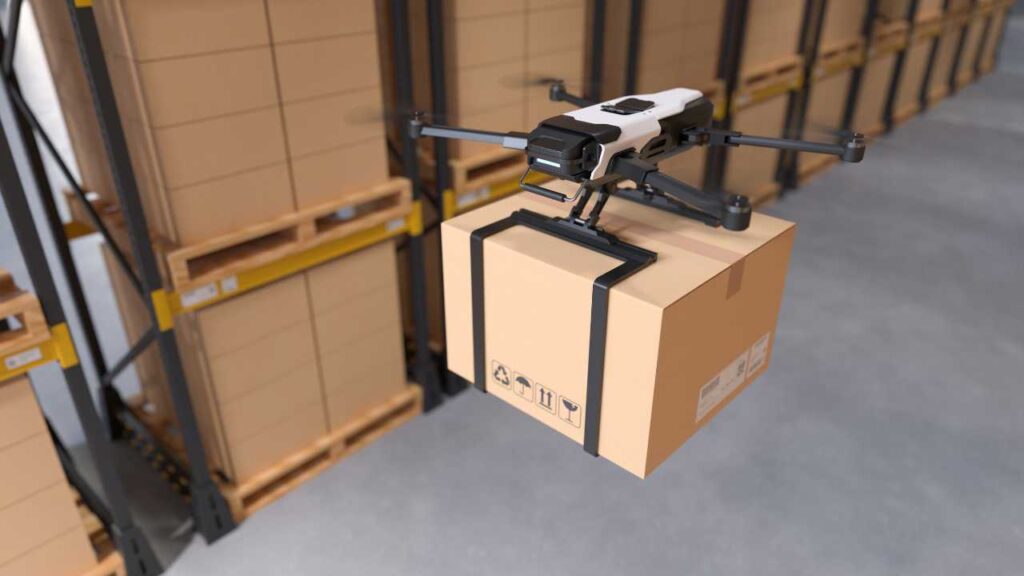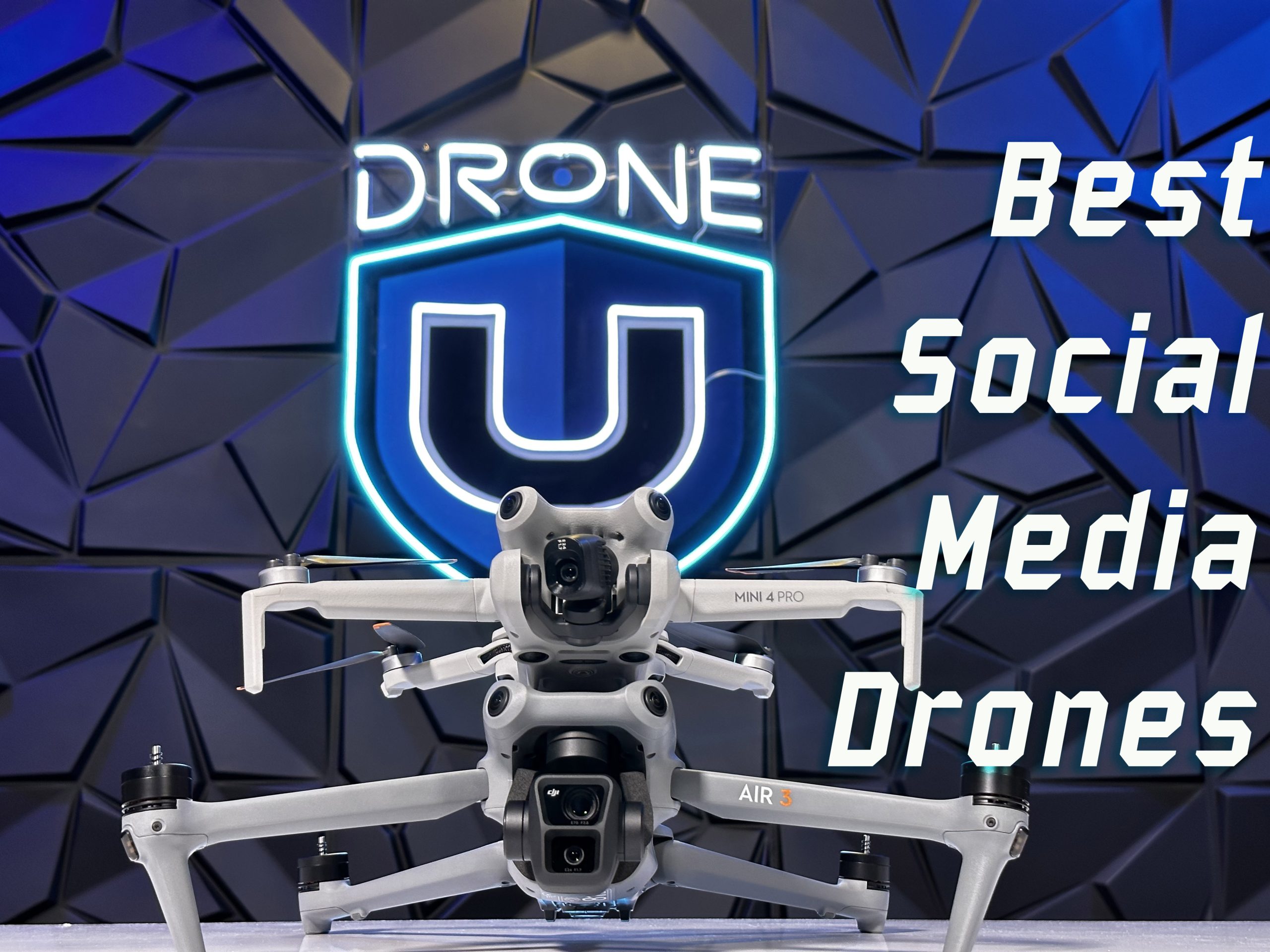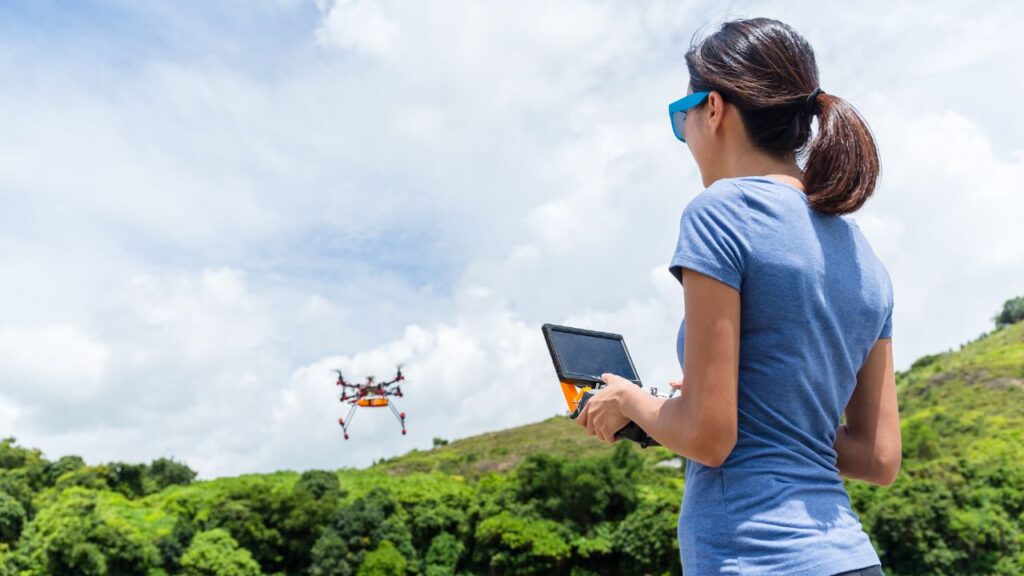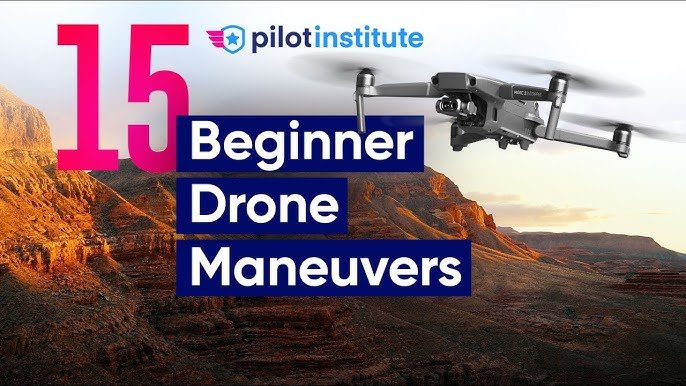Introduction
Understanding the Importance of Drone Training
In today’s fast-paced, technology-driven world, having a drone is just the tip of the iceberg. 🚁 Proper drone training is crucial if you want to harness the full potential of these marvels of engineering. Whether you’re using a drone for recreational purposes, commercial projects, or specialized operations, receiving adequate training can make all the difference. Many people underestimate the responsibilities that come with piloting a drone. Here’s why drone training is essential:
- Safety First: Flying a drone can pose risks to both the pilot and others around them. Training teaches you safety protocols, reducing the chances of accidents.
- Understanding Regulations: Drones are subject to various laws and regulations. Knowledge of these limits you from legal troubles and enhances responsible flying.
- Optimized Operational Skills: Training helps you master different flight maneuvers, ensuring that you gain confidence and proficiency in handling the drone.
- Improved Aerial Photography: If you’re into capturing breathtaking shots, proper training will teach you the best techniques for aerial photography and videography.
Investing your time and effort into proper training pays off tenfold in the long run!
Overview of Drone Training Programs
So, what does a typical drone training program look like? While various training programs exist, most cover key areas to give you a well-rounded foundation. Here’s an overview of what you can expect:
- Basic Operations:
- Introductory lessons on drone mechanics.
- Learning how to fly and maneuver drones effectively.
- Regulatory Knowledge:
- Detailed coursework focused on local and federal regulations.
- Guidance on acquiring necessary permits and licenses.
- Advanced Techniques:
- Specialized courses on aerial photography, surveying, or agricultural applications.
- Hands-on experience with advanced flight maneuvers.
- Troubleshooting & Maintenance:
- Lessons on how to care for your drone.
- Troubleshooting common operational issues.
- Certification Preparation:
- Structured exam preparation and study materials tailored to meet licensing standards.
Training programs can vary in duration and intensity, with options for both in-person and online classes. For example, if you enjoy a more personal touch, an in-person course might provide you with the mentorship you need to navigate the skies confidently. Many drone schools offer tailored learning paths depending on your needs, whether you want to become a casual pilot or an expert in commercial applications. As you venture into the world of drones, remember that quality training is your co-pilot on this exciting journey. The right education not only equips you with the skills to fly well but also to fly safely and responsibly. 🌟

Choosing the Best Drone Training School
Factors to Consider
Selecting the right drone training school is just as crucial as the training itself. With numerous options available, it can feel overwhelming at first. However, breaking down the factors to consider can help you make an informed decision. Here’s what you should keep in mind when scouting for the perfect drone training program:
- Accreditation and Certification: Ensure the school is accredited and offers recognized certification. This adds value to your training and enhances your credibility as a drone pilot.
- Experience of Instructors: Look for schools with seasoned instructors who have hands-on experience in the industry. Their insights and real-world stories can enrich your learning.
- Curriculum and Course Offerings: A comprehensive curriculum is vital. Check whether the school offers different training paths, including basic skills, advanced maneuvers, and specialized workshops.
- Class Size and Hands-On Experience: Smaller class sizes often allow for more personalized attention. Programs that prioritize hands-on flying time will help you gain practical experience more efficiently.
- Student Reviews and Testimonials: Research reviews from former students. Their experiences can offer valuable insights into what to expect, helping you avoid schools with subpar training.
- Location and Availability: Proximity is essential, especially if you prefer in-person training. Checking their schedule for flexible timings can also help you fit classes into your busy calendar!
These factors can set the foundation for your drone training journey, ensuring you make the right investment in your education.
Top Drone Training Schools Near You
Now that you know what to look for, let’s take a peek at some top drone training schools that might be located near you! Note that options will vary based on your location, but here are a few well-regarded schools across several regions:
- UAV Training Solutions
- 📍 Location: Multiple locations nationwide
- 📚 Offers: Comprehensive courses on drone regulations, piloting skills, and commercial applications.
- Drone Pilot Ground School
- 📍 Location: Online-based
- 💻 Offers: An intensive online curriculum with hands-on flight requirements and an easy-to-follow study guide for certification.
- Aerial Academy
- 📍 Location: Regional campuses
- 🌟 Offers: Tailored courses focused on aerial photography, agriculture applications, and drone maintenance training.
- SkyOp
- 📍 Location: National presence
- 🚀 Offers: Specialized training programs for different industry applications, including search and rescue and construction surveying.
- Drones Made Easy
- 📍 Location: Various locations
- 🎓 Offers: Personal coaching and unique workshops that focus on strategy and flight skills.
Exploring these training schools can set you on the right path to becoming a skilled drone pilot. Just remember, investing in quality training is an essential step if you want to soar confidently in the skies! 🌈✨

Beginner Drone Training Courses
Basic Drone Pilot Skills
Welcome to the exciting world of drone piloting! As a beginner, mastering basic skills is your first step toward becoming a confident and capable drone pilot. Let’s dive into the fundamental skills you’ll need to get started:
- Understanding Drone Components: Knowing the parts of your drone is crucial. Familiarize yourself with:
- Propellers.
- Batteries and motors.
- Cameras and sensors.
Each component plays a vital role in flight efficiency and safety.
- Essential Flight Controls: The ability to control your drone effectively is foundational. Skills to focus on include:
- Takeoff and Landing: Start with short, controlled flights to practice smooth takeoffs and landings.
- Hovering: Work on stabilizing the drone in mid-air, allowing you to take stunning aerial shots.
- Directional Control: Get comfortable turning, rolling, and pitching your drone as you maneuver it through the skies.
- Pre-flight Checks: Always do a check before flying. A solid routine might look like:
- Inspecting the propellers for damage.
- Ensuring the battery is adequately charged.
- Calibrating the compass and checking firmware updates.
Remember, practice makes perfect! Consider joining a local flying club or community, where you can learn alongside others, share experiences, and gain valuable flying time.
Introduction to Drone Regulations
As you gain confidence in your piloting skills, understanding drone regulations becomes essential. The legal landscape might feel overwhelming at first, but approaching it with a structured mindset will help you navigate it with ease.
- Federal Aviation Administration (FAA) Rules: In the United States, the FAA sets forth regulations for drone operation. Key points to remember include:
- Drones must be registered if they weigh over 0.55 pounds.
- Pilots need to maintain Visual Line of Sight (VLOS) with their drone during flight.
- Flying above 400 feet is generally prohibited.
- Local Laws and Restrictions: It’s important to do your research! Local ordinances may impose additional restrictions regarding where and when you can fly your drone. Always check:
- No-fly zones, such as near airports or government areas.
- Specific community guidelines that may vary by city or state.
- Understanding Airspace Classifications: Familiarizing yourself with different airspace types will help you plan safe flying routes. The main classifications to be aware of are:
- Class G: Uncontrolled airspace, generally more flexible for drone use.
- Class B, C, D, and E: Controlled airspace with stricter regulations.
As you progress through your beginner courses, staying informed about regulations will solidify your responsibilities as a pilot. Being well-versed in both flying skills and the legalities of operation not only ensures safe flying but can also elevate you to a more professional status as a drone pilot. 🌐✈️

Advanced Drone Training Programs
Advanced Flight Maneuvers
Once you’ve grasped the basics of drone flying, it’s time to elevate your skills! Advanced flight maneuvers can truly set you apart as a capable pilot and open up new avenues for your aerial adventures. These techniques can enhance your ability to capture stunning imagery, increase your operational efficiency, and prepare you for specialized tasks. Here are some advanced maneuvers you might learn:
- Acrobatic Moves: Learning tricks like flips, rolls, and high-speed turns can make your flying both fun and impressive. These maneuvers require practice but can significantly enhance your drone handling skills.
- Waypoint Navigation: This technique involves pre-programming flight paths using GPS coordinates. It’s particularly useful for automated flight missions. You can set a series of waypoints that your drone will follow—a skill invaluable for aerial mapping or surveying.
- FPV (First-Person View) Flying: Experience flying from your drone’s perspective! FPV flying opens up a new dimension of control and creativity. You’ll enjoy enhanced spatial awareness, but it requires extra concentration, particularly during high-speed maneuvers.
- Orbiting and Tracking Subjects: Mastering how to orbit around a specific point or smoothly track moving subjects can elevate your aerial photography game. This adds depth and dynamism to your shots, making your footage stand out.
Incorporating these maneuvers into your flying routine will undoubtedly enrich your skills. Moreover, it brings an exciting aspect to the learning process—who doesn’t love impressing friends and family with some cool aerial tricks? 🕺🏼🚀
Commercial Drone Operations
As you develop advanced skills, you may wish to transition into commercial drone operations. Drones are increasingly being adopted across various industries, and becoming proficient in commercial applications can open up lucrative career opportunities. Here’s what you need to know about commercial drone operations:
- Industry Applications: Drones are utilized in multiple sectors, including:
- Photography and Videography: Used for real estate, weddings, and cinematography.
- Agriculture: Drones help in crop monitoring, spraying pesticides, and even soil analysis.
- Construction and Surveying: Drones offer a bird’s-eye view for project monitoring, land surveying, and infrastructure inspections.
- Understanding Project Requirements: Each industry may have unique requirements. You’ll need to grasp specific needs like:
- Adjustments for payload capacities (cameras, sensors, etc.).
- Navigating regulations for commercial usage.
- Client Interaction and Reporting: In commercial settings, effective communication is vital. Clients often expect detailed reports alongside the imagery collected. Developing skills in project management, data presentation, and client relations will give you an edge in this competitive field.
- Insurance and Liability Considerations: Understanding the necessary insurance requirements will protect you and your clients. This step is crucial in mitigating risks associated with commercial drone operations.
Venturing into commercial drone operations makes for an exhilarating path filled with innovation and creativity. Not only can you turn your passion into a career, but you can also contribute positively to industries by offering unique aerial solutions. As you hone these advanced skills, you’ll find yourself not just flying but soaring in your drone piloting journey! 🏆✨

Specialized Drone Training Workshops
Aerial Photography and Videography
As drones have transformed the world of photography and videography, specialized workshops focusing on aerial imaging are becoming increasingly popular. If capturing stunning visuals from above excites you, diving into aerial photography and videography training could be your next best step! Here are some skills and techniques you’ll learn in these workshops:
- Camera Settings and Composition: Learning to adjust camera settings based on light conditions is vital. You’ll explore aspects like:
- ISO: Balancing sensitivity to light.
- Shutter Speed: Freezing motion or creating motion blur.
- Aperture: Controlling depth of field.
- Flight Techniques for Photography: A drone pilot needs to master specific flight techniques to get the best shot. Workshops will teach you about:
- Smooth, controlled movements to avoid shaky footage.
- Altitude management for achieving the perfect perspective.
- The art of framing shots for maximum impact.
- Post-Processing Skills: Capturing the image only marks the beginning! Learning the basics of photo and video editing software will help you enhance your visuals further. Key editing tools can include:
- Adobe Lightroom: For stunning photo adjustments.
- Adobe Premiere Pro: To edit and stitch together video footage seamlessly.
Consider trying out a few established training programs, as many offer practical sessions where you can work with real clients. This experience not only polishes your skills but also prepares you to build a professional portfolio! Imagine flying your drone to capture breathtaking landscapes or a friend’s wedding from a unique aerial view—sounds exhilarating, doesn’t it? 📸✈️
Search and Rescue Operations Training
Drones are not just about capturing pretty pictures; their application in search and rescue operations is nothing short of life-saving. Specialized training workshops in this field prepare you to assist in emergencies, providing invaluable skills to professionals and volunteers alike. Here’s what you can expect from search and rescue operations training:
- Understanding Emergency Protocols: Search and rescue operations come with a set of protocols that ensure efficient and safe procedures. Workshops usually cover:
- Coordination with local authorities and emergency services.
- Employing drones to assess the situation and locate individuals swiftly.
- Equipment Familiarization: Different drones are suitable for various rescue scenarios. Training workshops often provide exposure to:
- Thermal imaging cameras for night operations or difficult weather.
- High-resolution cameras for real-time video feeds.
- Searching Techniques: Learning effective searching techniques is the crux of this type of training. You’ll explore:
- Grid searches: Systematically covering an area to ensure thoroughness.
- Using drones for topographical mapping to determine the best search areas.
- Simulation Exercises: Practical simulations will give you hands-on experience dealing with hypothetical emergencies. This could be:
- Engaging in simulated searches for missing individuals in various terrains.
- Responding to mock calls for help and performing coordinated searches.
Participating in search and rescue training workshops allows you to harness the power of technology for critical missions. Knowing that your skills could help save lives adds an immense sense of pride to your flying experience. Combining passion with purpose is often the best way to find fulfillment in your drone journey! 🆘✨

Drone Maintenance and Repairs
Essential Maintenance Tips
Maintaining your drone not only ensures its longevity but also maximizes your flying experience. Treating your drone well can save you from unexpected crashes and costly repairs. Here are some essential maintenance tips to keep your drone flying high and healthy:
- Regular Inspections: Before every flight, take a moment to perform a pre-flight inspection:
- Propellers: Check for cracks or chips. These should be replaced immediately if damaged since they are crucial for safety.
- Battery: Inspect it for swelling or damage. Ensure connections are clean and secure.
- Frame: Look for signs of wear or intrusion, especially if you’ve had rough flights or crashes.
- Cleaning: Keeping your drone clean is vital to preventing dust buildup in sensitive electronic parts:
- Use a soft brush or microfiber cloth to wipe down the exterior.
- Avoid using water or cleaners directly, which could damage sensitive components. Instead, dampen the cloth gently.
- Firmware Updates: Don’t forget to check for firmware updates regularly! Manufacturers often release updates that can enhance performance, add features, or fix bugs:
- Connecting your drone to its companion app or website can make this process simple.
- Battery Management: Proper battery care can significantly extend its lifespan:
- Never let lithium batteries deplete completely—try to keep them between 20% to 80%.
- Store batteries in a cool, dry place, ideally at a charge of about 50%.
With these maintenance practices, you’ll find that your drone remains in excellent condition, allowing you to fly safely and confidently. Remember, spending a little time on upkeep can save you from substantial headaches later!
Troubleshooting Common Issues
Even with proper maintenance, drones can encounter challenges along the way. Knowing how to troubleshoot common issues will help you tackle problems quickly and get back to flying. Here are some frequent problems you might experience and how to resolve them:
- Drone Won’t Power On: If your drone doesn’t respond, check the following:
- Ensure the battery is securely connected and fully charged.
- Inspect the power switch for functionality.
- Poor GPS Signal: Interference can often cause GPS issues. To troubleshoot:
- Fly away from large metallic structures or heavy electronic equipment.
- Give your drone adequate time to find and lock onto GPS signals before taking off.
- Drone Drifting During Flight: If your drone isn’t stable and drifts, consider recalibrating:
- Most drones require calibration before every flight, especially if they’ve been moved to a new location.
- Follow the manufacturer’s calibration process—usually involving rotating the drone in specific orientations.
- Camera Malfunctions: If your camera isn’t functioning properly:
- Check the connection between the camera and drone; it may have become loose.
- Restarting your drone often resets the camera and resolves software-related issues.
Understanding these common issues and their quick fixes will not only enhance your flying experience but also give you confidence in handling your drone. If troubles persist, don’t hesitate to consult the manufacturer’s manual or seek professional repair services. Diving into the world of drone maintenance and troubleshooting can turn a good pilot into a great one! 🚁🔧

Hands-On Drone Flying Experience
Simulator Training
One of the best ways to refine your drone flying skills without the pressure of real-world flying is through simulator training. Drone simulators offer an immersive experience that prepares you for various flying scenarios while keeping your equipment safe. Here’s why simulator training can be a game-changer:
- Realistic Flying Conditions: Simulators provide environments that mimic real-world conditions, from calm skies to challenging weather. You can:
- Adjust settings to practice navigating through wind or rain.
- Fly in various terrains, like mountains or urban landscapes, experiencing unique challenges.
- Stress-Free Learning: The beauty of simulator training is that you can learn from your mistakes without the risk of crashing a real drone! It allows for:
- Trial and error in maneuvers without fear of costly repairs.
- Increased confidence as you master operations and handling.
- Customizable Training: Many simulators come equipped with varying levels of difficulty, allowing you to progress at your own pace. Whether you’re a beginner or looking to hone advanced skills, you’re in control. Key features often include:
- Tutorials for specific maneuvers or operations.
- Missions that simulate real-life flying tasks.
A simulator can be invaluable when deciding to fly in complex environments or during adverse weather conditions. Personally, my experience with a flight simulator made transitioning to my first real drone flight feel natural and less daunting. When I finally took to the skies, I felt well-prepared and ready to handle any situation!
Field Practice Sessions
While simulating realistic flying conditions is incredibly useful, nothing can quite compare to actual field practice sessions. Getting out there and flying your drone in the real world is essential for developing practical skills and gaining hands-on experience. Here’s what to expect:
- Guided Practice: Many training programs offer field practice sessions where experienced instructors provide real-time feedback. During these sessions, you can:
- Hone basic and advanced maneuvers under guidance.
- Fly alongside fellow students to build camaraderie and learn from each other’s experiences.
- Working with Real Equipment: Using your own drone during practice helps familiarize you with its specific controls, settings, and quirks. Consider taking:
- Pre-flight and post-flight checklists seriously to develop good habits.
- The opportunity to troubleshoot real issues on the fly, which adds to your learning.
- Shadowing Professionals: If you’re looking to specialize, many workshops allow you to observe professional pilots in action. This can provide a wealth of industry insights, including:
- How they approach various missions, whether it’s inspecting a building or surveying land.
- Tips on handling emergencies and navigating complex scenarios.
Field practice takes your simulator training to the next level, allowing you to apply what you’ve learned in a controlled environment. By combining the two—simulator training and field practice—you develop a well-rounded skill set that prepares you to navigate the challenges of real-world flying confidently. Whether you’re shooting breathtaking aerial footage or conducting field surveys, the confidence that comes from hands-on experience sets you on a path of continuous improvement in your drone flying journey! 🌟🚀

Drone Certification and Licensing
Requirements for Drone Pilot Certification
As you dive deeper into your drone pilot journey, obtaining certification becomes a critical step—especially if you’re looking to operate commercially. In the United States, the Federal Aviation Administration (FAA) outlines specific requirements for drone pilot certification known as the Remote Pilot Certificate. Here’s a breakdown of what you need:
- Age Requirement: You must be at least 16 years old to obtain your Remote Pilot Certificate. This ensures a level of maturity needed to operate drones responsibly.
- FAA Medical Clearance: Unlike pilot licenses for full-sized aircraft, there’s no specific medical exam for drone pilots. However, you should not have a medical condition that could impede your ability to safely operate a drone.
- Completion of the FAA Knowledge Test: To earn your certification, you’ll need to pass the FAA’s Part 107 Knowledge Test, which covers various topics like:
- Airspace classification and operating requirements.
- Weather and aviation weather resources.
- Drone loading and performance.
- Background Check: After passing the knowledge test, you must undergo a TSA background check to ensure your eligibility to operate a drone for commercial purposes.
- Certification Renewal: The certification isn’t a one-and-done deal! You’ll need to renew your Remote Pilot Certificate every two years by passing a recurrent knowledge test or completing a flight review.
With these requirements in mind, it’s crucial to start preparing early. Getting a solid grasp of aviation fundamentals will serve you well in your drone flying career.
Exam Preparation Tips
Feeling a bit anxious about the upcoming exam? Don’t worry! With proper preparation, you’ll be well on your way to passing. Here are some effective tips to help you study for the FAA Knowledge Test:
- Create a Study Schedule: Set aside specific times each week for focused study sessions. Breaking down topics into manageable chunks will help you retain information better.
- Use FAA Study Materials: The FAA offers essential resources, including the “Remote Pilot – Small Unmanned Aircraft Systems Study Guide.” Using official documents ensures you’re studying relevant material. Other recommended resources include:
- Online courses focused on FAA Part 107 regulations.
- Drone-specific apps that provide practice quizzes and flashcards.
- Practice Tests: Taking practice exams is a vital part of your preparation. They help you familiarize yourself with the test format and identify areas where you need to improve:
- Numerous online platforms offer free or paid practice tests to simulate the exam experience.
- Join Study Groups: Learning with peers can enhance your understanding. Consider joining forums or local drone clubs where you can discuss topics and share resources with others preparing for the exam.
- Stay Updated: Regulations and content may change, so always check for the most current information on the FAA’s website or current materials.
By following these tips and understanding the certification requirements, you increase your chances of passing the FAA Knowledge Test and embarking on a fulfilling drone piloting career. Remember, the certification process might seem challenging, but with effective preparation and a dedicated mindset, you’ll soar to new heights in your drone journey! 🌤️🛩️

Industry-Specific Drone Training
Agriculture Drone Applications
As drone technology continues to evolve, its impact on various industries is increasingly profound. In agriculture, drones have transformed traditional farming methods, offering farmers advanced tools to enhance productivity and crop management. Specialized training in agriculture drone applications equips operators with the skills necessary to utilize these high-tech tools effectively. Here’s what you can expect in agriculture-focused drone training:
- Crop Monitoring and Analysis: Drones can capture high-resolution images of fields, allowing farmers to assess crop health. Training includes:
- Learning how to interpret multispectral imagery for identifying plant health indicators.
- Monitoring irrigation levels and soil conditions for optimal crop production.
- Precision Agriculture Techniques: Understanding the principles of precision agriculture is essential. You’ll explore:
- How to utilize drones for targeted spraying of pesticides and fertilizers.
- Efficiently mapping fields for better resource allocation, helping lower costs and reduce waste.
- Data Collection and Management: Drones collect vast amounts of data that need to be processed and analyzed for actionable insights. Training covers:
- Using software to analyze data for improved decision-making.
- Preparing detailed reports that communicate findings to stakeholders.
Personal anecdote: I once participated in a workshop focused on agricultural drone applications, where I had the chance to analyze imagery from a cornfield. It was fascinating to see how drones could pinpoint areas needing more water or nutrients—a true game-changer for farmers!
Construction and Surveying Drone Training
If you’re leaning toward construction and surveying, receiving specialized drone training in this field can enhance project efficiency and accuracy. Drones are rapidly becoming indispensable tools in construction, allowing for quicker assessments and better project management. Here’s what you can expect from construction and surveying drone training:
- Site Inspection and Monitoring: Drones offer a bird’s-eye view, making site inspections more efficient. Training includes:
- Learning how to conduct aerial site surveys to assess progress and track changes.
- Using drones to monitor machinery, material delivery, and overall site logistics.
- 3D Mapping and Modeling: Drones can create accurate 2D and 3D maps of construction sites. You’ll gain skills in:
- Utilizing photogrammetry techniques to generate detailed models.
- Integrating drone-captured data with CAD programs for improved project planning.
- Regulatory Compliance and Safety: Construction sites come with strict regulations and safety requirements. Training ensures you understand:
- Relevant guidelines for flying over construction areas.
- Best practices for ensuring safety during aerial operations.
I recall watching a drone demonstrate a survey of a proposed building site, creating a precise digital model in a fraction of the time it took using traditional methods. It was impressive to see how quickly the data could be used for future planning, keeping projects on track! Industry-specific drone training in agriculture and construction offers the skills and knowledge necessary to utilize drone technology effectively. Whether you’re a farmer looking to optimize yield or a contractor aiming for smooth project execution, specialized training equips you to make the most of this innovative technology. Embracing such training paves the way for exciting advancements in your career and the industries you work in! 🚜🏗️✨

Continuing Education in Drone Technology
Staying Updated with New Regulations
In the fast-paced world of drone technology, staying up-to-date with new regulations is crucial for any pilot. Regulations are continually evolving, reflecting changes in technology, safety standards, and airspace management. If you plan to operate drones for recreational or commercial purposes, making continuous education a priority is essential. Here are ways to keep yourself informed:
- Subscribe to FAA Notifications: The Federal Aviation Administration (FAA) regularly publishes important updates related to drone regulations. Subscribing to official newsletters or alerts will keep you ahead of the curve.
- Join Online Communities: Forums and online platforms dedicated to drone enthusiasts and professionals often share real-time updates about regulatory changes. Engaging in discussions can provide insights from fellow pilots about navigating new rules.
- Attend Workshops and Webinars: Many organizations and drone training schools offer workshops or webinars focused on legal compliance and emerging regulations. Consider the following:
- Sign up for sessions that review the latest in Part 107 regulations.
- Discuss legal considerations with industry experts during Q&A sessions.
- Follow Regulatory Organizations: Stay connected with groups like the Association for Unmanned Vehicle Systems International (AUVSI) that publish articles, research, and updates on the evolving landscape of drone legislation.
In my experience, I’ve found that participating in local drone meetups has provided not only practical tips but a direct line to professionals who share valuable insights regarding regulatory updates. You can never be too informed, especially when your legal flying status is at stake! 🚀
Advanced Training for Experienced Pilots
As your skills and confidence grow, continuing education evolves into advanced training that can take your expertise to the next level. Experienced pilots often seek specialized courses that help them refine their skills, explore new applications of drone technology, and remain competitive in the market. Here are some advanced training options to consider:
- Specialized Skill Workshops: Focus on unique skills that align with your interests or career goals, such as:
- Aerial cinematography for filmmakers looking to enhance their visual storytelling.
- Inspection techniques for industries like telecommunications or industrial maintenance.
- Industry Certifications: Obtaining certifications specific to advanced operations, such as working in manned and unmanned aircraft operations, can enhance your marketability in specialized fields. Look into certification programs that align with:
- Public safety and emergency response operations.
- Agricultural drone application specialists.
- Networking Opportunities: Advanced training often provides platforms for interacting with industry leaders and peers, fostering collaboration and knowledge sharing. Joining professional organizations can lead you to:
- Conferences where market trends and technologies are discussed.
- Workshops that focus on new technologies or regulatory compliance.
- Hands-On Advanced Flight Experience: Many programs offer flight time focused on advanced maneuvers, optimizing flight for specific applications (like mapping), and achieving certification in new skills.
Taking advanced training courses not only sharpens your skills but can also prepare you for the rapidly changing landscape of the drone industry. I enrolled in a certification workshop aimed at improving inspection skills for infrastructure, and it opened my eyes to an entire sector of drone applications I had never considered before. Continuing education is the key to staying relevant and successful in the drone piloting world. By embracing regulatory updates and seeking advanced training opportunities, you’re setting yourself up for long-term success in a dynamic field! 🌟✨



